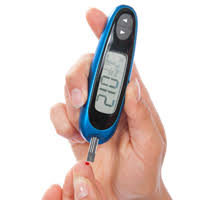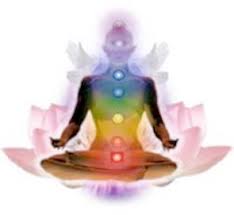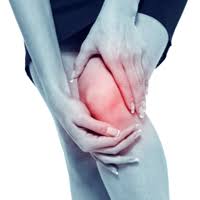Hairfall, Skin Ailments(Acne, urticaria, allergy), Respiratory disorders (cough, sinusitis, bronchitis, asthma, rhinitis), obesity, diabetes, hypertension, migraine, depression, stress, arthritis, indigestion, Rejuvenation.
Diabetes
Diabetes is generally termed as ‘ Madhumeha ‘ in Ayurvedic terminology.
All the classical Ayurvedic texts have elaborate descriptions of the management of diabetes and its complications. Today, Diabetes Mellitus ( D.M.) is spreading fast in Urban as well as Rural areas.

W.H.O. has projected India as the country with the fastest growing population of diabetes. It is estimated that between 1995-2025, diabetic patients in India will increase by 195%. Though the reasons of this rapid spread are ill-understood, yet, lack of exercise, stress and strain in society, irregular food habits along with life style changes in social
set ups have made individuals more prone to D.M. at an early age. Young people with Insulin Dependent Diabetes Mellitus(IDDM) are prone to eating disorders- anorexia nervosa/excessive eating. Adults with long standing D.M. and medical complications are at risk of symptoms of depression and anxiety. Elderly with non-insulin dependents D.M. (NIDDM) develop psychosocial behavioural changes. This is because patients imagine their self-regimen to be too difficult and assume that the treatment is unlikely to improve their health. In such cases the practitioner should maintain a right balance of therapeutic and psychosocial concerns clouding the patient’s mind.
ROLE OF AYURVEDIC MEDICINES:
Ayurvedic medicines are very effective for diabetic patients.They are particularly helpful in –
- Newly diagnosed Diabetes Mellitus
- Uncomplicated Diabetes Mellitus
- Non-Insulin Dependent Diabetes Mellitus ( NIDDM )
- Insulin DependentDiabetesMellitus(IDDM) under strict supervision/monitoring of blood sugar levels.
- Early stages of complications i.e. Nephropathy, Neuropathy and retinopathy.
Ayurvedic medicines are combined with regular hypoglycaemic drugs already taken by the patients. Sugar levels are monitored at regular intervals and the latter are tapered gradually. The reduction of sugar levels is slow but progressive with continous use of Ayurvedic drugs. These are safe because these medicines do not lead to hypoglycaemic episodes.
 Hypertension
Hypertension
High blood pressure or hypertension means high pressure (tension) in the arteries. High blood pressure does not mean excessive emotional tension, although emotional tension and stress can temporarily increase blood pressure. Normal blood pressure is 120/80. The top number, the systolic blood pressure, corresponds to the pressure in the arteries as the heart contracts and pumps blood forward into the arteries. The bottom number, the diastolic pressure, represents the pressure in the arteries as the heart relaxes after the contraction. The diastolic pressure reflects the lowest pressure to which the arteries are exposed.
An elevation of the systolic and/or diastolic blood pressure increases the risk of developing heart (cardiac) disease, kidney(renal)disease, hardening of the arteries (atherosclerosis or arteriosclerosis), eye damage, and stroke(brain damage). It was previously thought that rises in diastolic blood pressure were a more important risk factor than systolic elevations, but it is now known that in people 50 years or older systolic hypertension represents a greater risk.
Hypertension is a major public health problem.
 Obesity
Obesity
Obesity is a nutritional disorder which requires significant emphasis as it predisposes many diseases & diminishes efficiency and happiness of those affected. Excess fat accumulates because there is imbalance between energy intake and expenditure. A very small excess of calories, if taken habitually, can eventually lead to a large accumulation of fat. Social factors may contribute to overeating and some people overeat because they are unhappy.It is most prevalent in middle age, but can occur at any stage. Obesity in childhood & adolescence is likely to be followed by obesity in adult life. A familial tendency may exist in many cases. Obesity in women commonly begins at puberty , during pregnancy or at menopause.
Reducing weight can be a natural activity and an enjoyable pastime for those who do not suffer from any other serious disease. Weight reduction can be achieved by reducing intake of calories or by increasing its output or by a combination of both. A proper diet plan, appropriate physical activity and a correct use of herbs and medicines should be planned to achieve the required target.
 Rejuvenation
Rejuvenation
Ayurveda considers ageing an intellectual error.
“SWASTHYA URJASKANYASTU TADA VRISHYAM TAD RASAYANAM” –CHARAK
Which means whatever that serves for augmenting the excellence of health is the mode of rejuvenation and that is the elixir of life.
Prevention of disease, preservation and promotion of positive health are emphasized in Ayurveda. These are called rasayans of body and mind and these tonics promote the power of body resistance. Rejuvenation(Rasayana) therapy promotes longevity, prevents ageing, provides positive health and mental faculties, increases memories and imparts resistance and immunity against diseases. Nowadays, this treatment is best suited to the patients of all age groups and its timely use may prevent the decadence process and lifestyle disorders.
 Arthritis
Arthritis
According to ‘SUSHRUTA’ – When ‘Vata’ takes recourse to joints , it interferes with the functions of the joints and causes pain and swelling thus hindering the movements. This is Osteoarthritis or ‘Sandhivata’. ‘CHARAKA’ has described ‘Vata’ dosha with ‘Ama’ , ie the undigested residual impurities deposited in the cells. Improper fat metabolism in digestive system creates a variety of ‘Ama’which shows special affinity for bones and joints.This is Rheumatoid Arthritis or ‘AMAVATA’ in which ‘Vata’ circulates ‘Ama’ in the entire body and when it reaches joints the disease is caused. Effective management of arthritis involves immediate elimination of doshas during exacerbation phase and gradual elimination of deep ‘ama’ during remission phase of the disease.
 Depression / Stress
Depression / Stress
Feeling sad, unhappy and generally low in spirit often occurs after a disappointing or distressing event. If these feelings become long lasting, they may develop into much more than normal grief and affects the person’s life style, mental and physical health. Similarly, being stressed can make it difficult to deal with even the simplest changes in life. Both these conditions are illnesses and not a weakness. Depression may be influenced by the type of person you are, how you cope with things and the support you have around you. A number of Ayurvedic medicines and pure herbs are known to reduce stress without giving a sedative effect.
- Exercise helps relieve stress.
- Do one thing at a time. Do not try to do everything at once.
- Plan the things ahead of time.
- Cut down on cigarettes/alcohol.
- Learn to say “no” to jobs that put you under too much pressure.
- Remember to smile and laugh – the best stress reliever.
 Headache
Headache
Pain in the body means a cry for ‘HELP’. If dealt with properly, the frequency can be reduced markedly. Headache is a common pain. Some people find that certain things induce their hormonal changes, coffee withdrawal, excess alcohol, fasting, missing meal, too much or too little sleep, pollution etc. MIGRAINE is Ayurveda is called ARDHAVBHEDAKA. It commonly occurs on one side of the head and when severe may throb in time with pulse. One is not able to bear light, noise or strong smell. Patient feels sick and sometimes vomits. TENSION HEADACHE is caused by stress, worry and anxiety. It is felt at the back of the neck or across the top of the forehead and is felt like a band around the head or weight on the top of the head. Working in the same position for many hours each day may worsen tension headache and it may last longer. SINUS HEADACHE is caused by blocked sinus and is felt above pain above the eyebrows, between the eyes and in the cheek bones. The pain is worse when waking up or bending over.
- Avoid the cause.
- Have some massage on the tense muscles.
- Learn to relax. Plan ahead.
- Exercise regularly.
- Eat regular healthy meals and sleep regularly.
- Wear sunglasses to reduce glare.
- Drink 6-8 of water each day.
- Drink plenty of water before going to bed if alcohol intake is too much.
- Have a regular break if worked prolonged in the same position.
 Respiratory Disorders / Asthma
Respiratory Disorders / Asthma
- Avoid dust and smoke.
- Avoid cold drinks and sour eatables.
- Avoid curd, butter, milk, banana, and fried foods.
- Cut off smoking completely and permanently.
- Hot drinks are advisable. Herbal tea is preferred. Sip hot water during attack.
- Light diet and small frequent meals.
- Steam inhalation.
- Breathing exercises like Pranayama are useful.
- Morning walk advised.
- Dinner should be light and should be taken early in the evening.
 Indigestion / Gastritis
Indigestion / Gastritis
Gastritis is the discomfort or pain in the epigastric region. When stomach acid flows back into the oesophagus one gets a feel of burning in the centre of the chest. It increases when lying down or bending forward. Indigestion(Dyspepsia) is the pain felt after a rich meal. The stomach has to work harder and pumps out extra acid to help the rich food or alcohol. This discomfort can also be due to stress, nicotine, some medicines and pregnancy.
CAUSES:
- Hurry, worry, curry.
- Spicy food, excess alcohol and smoking.
- Overstress.
- Low fibre diet and eating on the run.
ADVICE:
- Eat bland food for a day. Avoid mustards, sauces and spicy foods.
- In case of heartburn, raise the head of the bed.
- Wear loose clothing especially around the waist.
- Avoid eating or drinking for two hours before going to bed.
- Eat small meals, more often.
- Do not over eat.
- Have good balanced diet and plenty of water.
- Learn to relax.
- Resist bending over and lying down after meals.
- Avoid alcohol coffee, strong tea.
 Skin Care
Skin Care
‘Cure’ is essential when the norms of ‘Care’ are violated. Curative applications are for short period of time till the ailment is subsided but the care is to be stressed or observed for a healthy skin. Cleaning, Nourishing & Protecting are the key factors in Ayurvedic Skin Care . Ayurvedic cosmetics along with Ayurvedic diet & lifestyle practices, help towards achieving the target. The word ‘ cosmetic’ comes from the Greek word ‘KOSMETIKOS’ where ‘KOSMOS’ means order & as a whole it means ‘Skill in arranging’. This term perfectly reflects the ancient belief that beauty is all about harmonizing one’s life style as well as bringing order to the mind & inner working of the body .Chemicals should be best avoided for the skin. Use of harsh soaps, over exposure to heat & cold & over use of makeup results in the dullness of the skin.
Ayurveda emphasises on a perfect , balanced diet which is rich in proteins, carbohydrates & essential minerals which are required for the body. A proper balance of the above mentioned nutrients stimulates the digestive system & boosts the blood circulation. Water intake should be good. At least 8-10 glasses of water should be taken per day. It cleans away the toxins & gives the skin a flawless , natural glow.
Lifestyle guidance indicates that despite busy schedules , time should be taken out for ones own body. Early morning walks , exercises & yoga should become a part & parcel of the daily routine. Deep breathing in the form of Pranayams activates the tissues to the core. Waking up early in the morning , doing proper exercises taking baths daily , eating at the proper time are the simplest norms of Ayurvedic lifestyle. All these things detoxify the body , remove constipation , boost up the blood circulation thus ensuring smooth & acne free skin.
Hair Care
Hair ailments such as hair fall, dandruff, grease or dryness should never be neglected. Hair fall is caused by various factors like stress, tension, thyroid imbalance, poor diet ,hormonal changes in pregnancy and menopause colours, dyes and genetic factors.Hair loss, although, is a normal phenomenon as new hair replaces the old but when the proportion is disturbed it leads to baldness.Dandruff results in itching and flaking of the scalp. Sometimes it affects ears, eyebrows and forehead. Overactivity of oil glands is one of the causes.
- Regular care and Ayurvedic oil massage is essential to revitalize the scalp.
- Digestive system needs to be taken care of properly.
- Proper and balanced diet is essential.
- Proper combination of medicinal herbs along with Yoga and Pranayama is needed.

